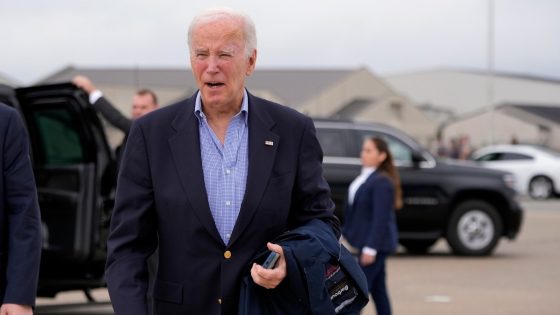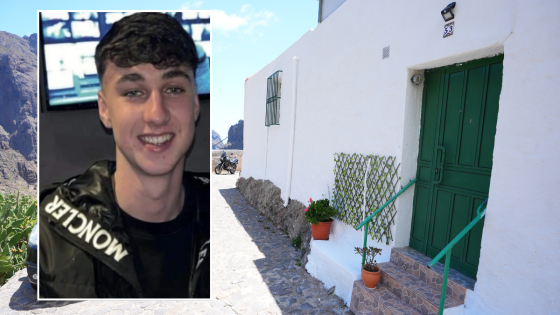Day 612:10Retired Canadian wrestler bets on the future of Canada’s pro wrestling past, with a reboot of Maple Leaf Pro Wrestling
For professional wrestling promoter Scott D’Amore, childhood Saturdays in Windsor, Ont., meant one thing: Maple Leaf Wrestling on cable television.
“It was what came through on Saturdays on CHCH out of Hamilton,” he told Day 6 guest host Nav Nanwa.
“Every week they took a match from one of the Maple Leaf Gardens house shows, live events, and they showed it on TV, and the only place you got to see that was on Maple Leaf Wrestling.”
D’Amore’s love for Maple Leaf Wrestling and pro wrestling in general eventually led him to enter the industry as a performer, before rising through the corporate ranks, including tenure as the president of the Total Nonstop Action (TNA) Wrestling company.
Decades after the Canadian brand was acquired by what is now known as World Wrestling Entertainment (WWE), D’Amore, 50, has secured the rights to the footage that remains of the Maple Leaf Wrestling broadcasts and has relaunched the brand under a new, albeit similar name: Maple Leaf Pro Wrestling.

He plans to broadcast archival matches through online platforms like YouTube and Facebook, while once again hosting live matches beginning with two events scheduled for late October.
Canada at the forefront of wrestling history
Though D’Amore watched Maple Leaf Wrestling on television in the 70s and 80s, the company — known in wrestling parlance as a promotion — was founded in 1930 as the Queensbury Athletic Club, according to pro wrestler Vance Nevada.
“Toronto became recognized as one of the top drawing wrestling cities in North America,” said Nevada, who’s also a wrestling historian and author.
Before the WWE mega shows and pay-per-view events, he says Maple Leaf Wrestling-branded shows drew crowds of up to 20,000 at venues including Toronto’s Maple Leaf Gardens under the leadership of founder Jack Corcoran, and later John and Frank Tunney who bought it in the late 1930s.
The Tunneys maintained control of the wrestling promotion until 1984 when it was bought out by wrestling promoter Vince McMahon’s World Wrestling Federation (WWF), which rebranded to the WWE in 2002.
D’Amore says McMahon was an aggressive businessman who would buy smaller wrestling promotions from willing owners. To the unwilling, he would run competing shows in their market, and “tried to run you out of business — and ultimately was successful every time he did that.”
By that time, Frank Tunney’s nephew Jack Tunney was running Maple Leaf Wrestling shows.
“Jack made the business decision, rather than fight this battle, [to] sell it to WWF,” said D’Amore.
Jack would make sporadic appearances on WWF television in the later ’80s and 1990s as the WWF’s on-screen president, “becoming one of the most legendary characters” of the program, D’Amore said. The WWF continued to run shows in Canada under the Maple Leaf Wrestling brand into the ’90s.
McMahon resigned from WWE in January 2024 following a lawsuit and allegations of sexual assault and sex trafficking involving himself and other high-ranking executives in the company, which is owned by TKO Group Holdings. The case is currently under investigation by the U.S. Department of Justice.

Between 1930 and 1984, Nevada says more than 5,000 wrestling events were held under the Maple Leaf Wrestling banner, and was responsible for launching the careers of “countless international superstars and Hall of Famers,” including Indian-Canadian wrestler Tiger Jeet Singh, who had an extensive grappling career in Japan and North America.
New promotion could provide hope for Canadian wrestlers
D’Amore says his goals for Maple Leaf Pro Wrestling are multifold.
While the promotion will honour the legacy of its past with archives of classic Maple Leaf Wrestling matches and broadcasts, D’Amore also wants to make sure Canadian pro wrestlers get a chance to show their skills.
“Canadian talent has to work twice as hard, three times as hard as U.S. talent … I think we can give that platform for Canadian talent to go out there and compete with the best in the world and show how good they are,” he said.
Nevada says he’s already hearing from pro wrestlers eager to get in the ring.
“There’s been a lot of discussion in locker rooms across the country … speculating what opportunities this could create,” he said.
Back in the ’70s and ’80s, Canadian wrestlers had five regions — or territories, in wrestling lingo — where they could get international exposure: the Maritimes, Montreal, Toronto, Calgary and Vancouver.
“As wrestling went away from that territory system, it’s harder and harder for Canadians to get into the U.S., to attract the attention of major companies.”
Toronto-based pro wrestler Stratos Fear has fond memories of watching Maple Leaf Wrestling in the 1990s when it was a subsidiary of the WWF. He says he’s curious about D’Amore’s plans for the rebooted promotion, because it’s difficult for Canadians to get a break with the larger wrestling companies in the U.S.
“I’ve had friends that have gone to a WWE camp that was hosted here, and at the end of it they’re like, well, it’s kind of difficult for us to sign Canadians,” said Fear, though he isn’t sure why.
Nevada says he’s optimistic that D’Amore will be able to create a platform for Canadian wrestlers to earn international exposure.
“This could be potentially the biggest thing in a generation to help the next wave of major superstars in Canada get a break,” he said.
Source Agencies




